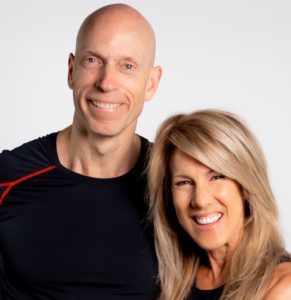Health & Fitness Assessments – Before Starting An Exercise Program
Today we’re going to talk about health and fitness assessments that should be done before starting a general exercise program.
Should I Talk to My Doctor?
One of the most common questions – should I talk to my doctor before I start an exercise program? And it’s not a yes or no, it depends. To determine if you should talk to your doctor – start by filling out a Par Q and You. This seven question form can tell you if you’re ready to begin a general exercise program or if you need to talk to your doctor (if you’re over 69, talking to a doctor is recommended regardless of the form). If you’re not ready to start an exercise program there is an increased risk of cardiovascular complications (i.e. heart attack), joint injury, and/or a muscle strain.
Par Q and You Form
If the Par Q and You gives you the green light some health assessments that are recommended prior to starting the program include blood pressure, blood sugar, BMI (height/weight), cholesterol, and possibly hormones. These are common tests that your doctor will perform or you can do them yourself. Companies like walkinlabs.com allow you to perform your own health screening without the need for a doctor. Also realize the hormones can play a significant role in the success or failure of a program, especially when it comes to weight loss. Walk in labs and other companies have blood tests specifically to address weight loss and your doctor should know the most necessary tests if weight loss is a goal.
At the Gym Health and Fitness Assessments
Besides hormones and general health assessments, once you get to the gym there are certain assessments that are recommended. One of the first is body fat measurements. So while the BMI is important, what’s even more important is what your body fat level is. It’s important because someone with more muscle might actually have an elevated BMI, but in reality, they just have more muscle mass. So body fat is a more specific measurement of health, when it comes to weight, than BMI.
Besides body fat we also want to perform a cardiovascular assessment. One of the easiest and most common is a step test. The step test measures how high your heart rate goes and provides insight into your cardiovascular fitness. As your fitness levels improve, your heart rate actually goes down with the same workload. So you should reassess after 6-8 weeks to see if you have made improvements.
In addition to cardiovascular assessments – strength assessments are key. A good upper body test is the push up or pull up. While for the legs it’s a back squat, squat, or lunge depending on fitness levels. Solid upper and lower body strength is important so make sure to get these checked.
While strength assessments are commonly performed prior to starting an exercise program – movement screens are not. Movement screens look at how you move as an individual and are an important component of a screening profile. When movement is inefficient, faulty, or compromised it can lead to increased risk of injury and decreased performance. A couple that should be checked is squat, lunge, active balance, and active flexibility.
Test Your Flexibility
Speaking of flexibility – these should be incorporated as well. Gone are the days of just doing a sit and reach test. A thorough flexibility assessment should look at most of the major muscle groups including the neck, shoulders, hips, quadriceps, hamstrings, calves, chest, and rotational muscles.
Summary
In summary, performing a battery of assessments prior to starting an exercise program can help decrease injury, improve performance/outcomes, provide insight into better program design specifically for you, and allow you to track progress. Here’s some of the most important:
- Par Q & You
- General Health Assessments (blood pressure, bloodwork, etc.)
- Body Fat
- Cardiovascular
- Strength
- Movement Efficiency
- Flexibility
Glen Carrigan
Freedom 4 Life Fitness

